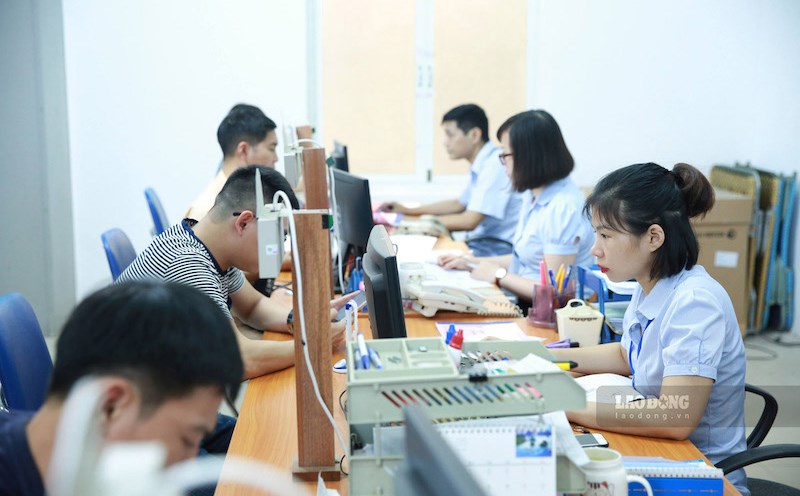Unemployed workers do not choose to learn a trade or rarely choose to learn a trade is a common reality today.
Assessing this situation, Mr. Le Quang Trung - former Deputy Director in charge of the Department of Employment said that the current policy is only at the level of supporting unemployed workers to learn a trade but not ensuring a certain output. Therefore, linking theory with practice and training close to market demand is a decisive factor.
In particular, some sectors in the training category for workers are still limited and do not meet practical needs, said Mr. Trung.
According to the Department of Employment, in 2024, nearly 24,000 people will be supported with vocational training. In the first 6 months of 2025, about 10,000 people were supported.
According to the Hanoi Employment Service Center, to attract more workers to participate in vocational training, synchronous coordination is needed from relevant parties.
For local employment service centers, it is necessary to promote the dissemination of free vocational training support programs. Vocational training institutions should link the training process with businesses, ensuring that workers have job opportunities after finishing their studies. Promoting propaganda, not only focusing on rights but also discussing the obligations, responsibilities and goals of this policy, not abusing the resources of the unemployment insurance fund because it can affect other beneficiaries.
Dr. Nguyen Thi Lan Huong, former Director of the Institute of Science, Labor and Social Affairs, said that in order to overcome limitations and further improve vocational training policies for unemployed workers, vocational training programs need to be designed in accordance with learners' strengths, supplementing soft skills and information technology.
"The fact that workers are not interested in vocational training policies when unemployed is a matter worth considering. However, from a social perspective, this reason may be that the main reason for job losses is unskilled laborers, most of whom do not have economic accumulation, so there are no conditions to learn new vocational skills with the current limited vocational training support level. The unemployment insurance policy only supports vocational training costs, not supporting other costs such as accommodation and travel when vocational training centers are not near their residence, making workers even more interested in vocational training, said Ms. Huong.
Clause 3, Article 42 of the 2013 Law on Employment stipulates;
Unemployment insurance regimes
1. Unemployment benefits.
2. Support job consultation and introduction.
3. Support Vocational Training.
4. Support training, fostering, and improving vocational skills to maintain jobs for workers.











